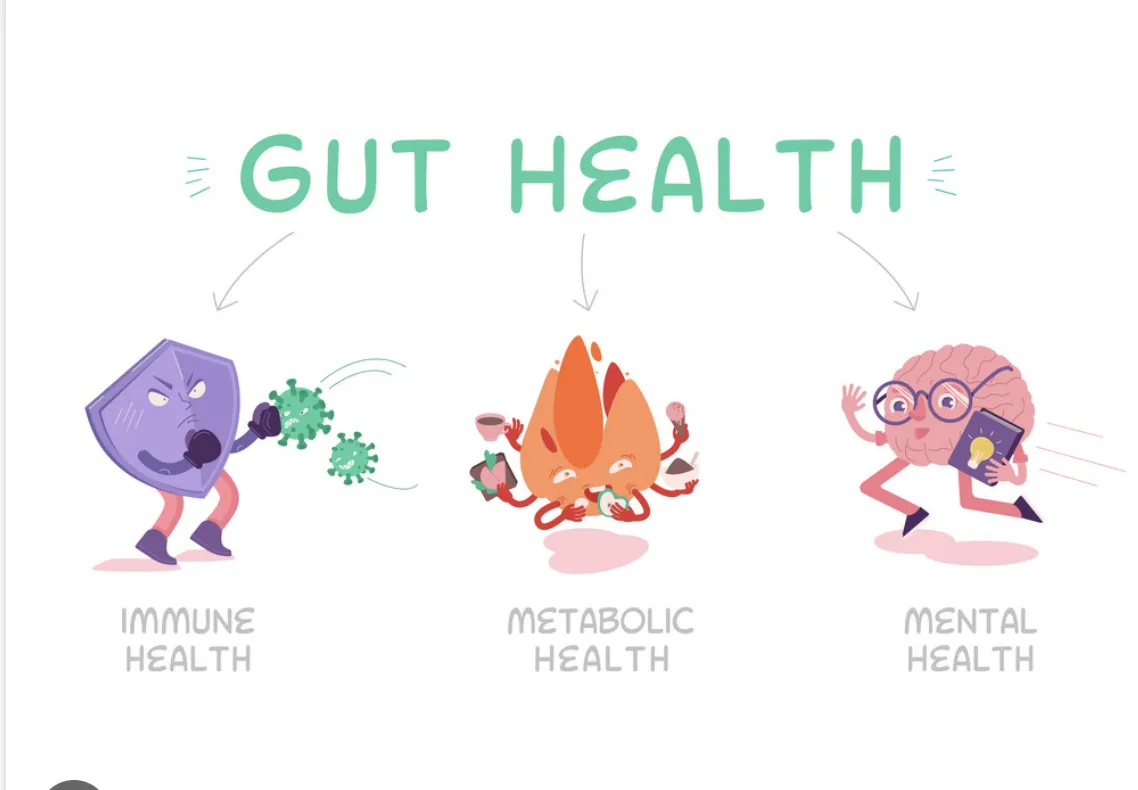
This Is Why You're Hearing "Fiber Is The New Protein"
Recently we talked about how great oats are for your gut microbiome. Let's talk about what that means.
Your "gut microbiome"-- the viruses, fungi, and microbes living in your gastrointestinal tract make up about half of your body's cells!
A nutritious and fiber-rich diet of plants and grains supports a healthy digestive tract, prompting it to produce health-promoting compounds called short-chain fatty acids, which help reduce inflammation.
Your gut microbiome affects....
Your mental health
Your gut health can impact mental health conditions like clinical depression and anxiety, as well as feelings of happiness. Over 90% of your serotonin—a key brain chemical tied to mood—is found in your gut.
Your microbiome can influence how you handle everyday stressors. Following a gut-friendly diet, such as the Mediterranean diet, can reduce your risk of depression and anxiety by as much as 40%.
Your cognitive health
Your microbiome can reduce inflammation, which is linked to neurodegenerative conditions such as Parkinson’s disease and Alzheimer’s disease
Your heart
Hypertension, high cholesterol, diabetes, and obesity are risk factors for heart disease--the No. 1 cause of death in the US. They're all chronic issues connected to the microbiome.
Your digestive system
People with Crohn’s disease and ulcerative colitis have less diverse gut bacteria and fewer inflammation-fighting gut microbes. They tend to have an overgrowth of a bacterium linked to intestinal illness.
Microbes in your GI tract secrete enzymes that influence how food moves through your bowels. When they're out of balance, constipation or diarrhea results.
Your immune system
Your gut contains 70% to 80% of your immune system. "Good" microbes keep out harmful viruses, bacteria, and allergens. If your gut barrier weakens, you’re more prone to infectious diseases like colds and flu, in addition to chronic conditions such as heart disease, cancer, stroke, and diabetes. A gut-friendly diet can help intestinal cells grow and repair to strengthen that barrier.
Your weight
People with obesity tend to have less diverse gut microbiota. People with a high visceral fat level were found to have different species of gut microbes than those with low visceral fat levels. Gut microbes affect weight-regulating hormones that affect how your body burns calories—impacting digestion, appetite, fat storage, and inflammation.
Create a healthier gut
The choices you make today will start to reshape your microbiome immediately. Sleep, stress, and physical activity all impact your microbiome.
Feast on fiber
Gut microbes love fiber--particularly resistant starches, like the overnight oats and refrigerated starches we've talked about. A high-fiber diet promotes satiety and can support healthy weight management, yet 95% of people don't get enough in their diet.
Increase fiber gradually if your system isn't used to it.
Eat a variety of plants
People who eat the greatest variety of plants—at least 30 different types per week—have the healthiest guts.
Include fermented foods
Yogurt, kefir, kimchi, tofu, tempeh, sauerkraut, and miso are filled with gut-friendly bacteria.
Minimize ultra-processed foods
Foods high in added sugar, sodium, and saturated fat, and low in nutritional value allow "bad" gut bacteria to flourish and create inflammation.
Replace saturated fats with healthy fats
Healthy fats produce healthy gut microbes. Emphasize omega-3 fatty acids, found in salmon, nuts, and avocados, and minimize saturated fats like butter, coconut oil, and animal fats.
What about probiotics?
They haven't proven to be particularly worthwhile. You have no way of knowing which microbes you need.
A better bet is to focus on your diet and healthy habits!